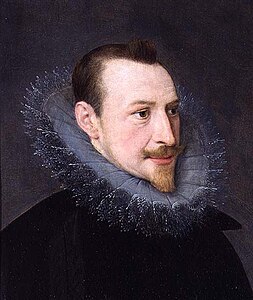Analysis of Sonnet 54
Edmund Spenser 1552 (London) – 1599 (London)
Of this worlds theatre in which we stay,
My love like the spectator ydly sits
Beholding me that all the pageants play,
Disguysing diversly my troubled wits.
Sometimes I joy when glad occasion fits,
And mask in myrth lyke to a comedy:
Soone after when my joy to sorrow flits,
I waile and make my woes a tragedy.
Yet she, beholding me with constant eye,
Delights not in my merth nor rues my smart:
But when I laugh she mocks, and when I cry
She laughs and hardens evermore her heart.
What then can move her? if nor merth nor mone,
She is no woman, but a senceless stone.
| Scheme | ABABBCBCDEDEFF |
|---|---|
| Poetic Form | |
| Metre | 1111000111 111010011 0101110101 111101 0111110101 0101110100 1101111101 1101110100 1101011101 0110111111 1111110111 110101001 1111011111 111101011 |
| Closest metre | Iambic pentameter |
| Characters | 563 |
| Words | 111 |
| Sentences | 6 |
| Stanzas | 1 |
| Stanza Lengths | 14 |
| Lines Amount | 14 |
| Letters per line (avg) | 32 |
| Words per line (avg) | 8 |
| Letters per stanza (avg) | 444 |
| Words per stanza (avg) | 109 |
Font size:
Submitted on May 13, 2011
Modified on April 30, 2023
- 33 sec read
- 262 Views
Citation
Use the citation below to add this poem analysis to your bibliography:
Style:MLAChicagoAPA
"Sonnet 54" Poetry.com. STANDS4 LLC, 2024. Web. 28 Apr. 2024. <https://www.poetry.com/poem-analysis/9201/sonnet-54>.


Discuss this Edmund Spenser poem analysis with the community:
Report Comment
We're doing our best to make sure our content is useful, accurate and safe.
If by any chance you spot an inappropriate comment while navigating through our website please use this form to let us know, and we'll take care of it shortly.
Attachment
You need to be logged in to favorite.
Log In